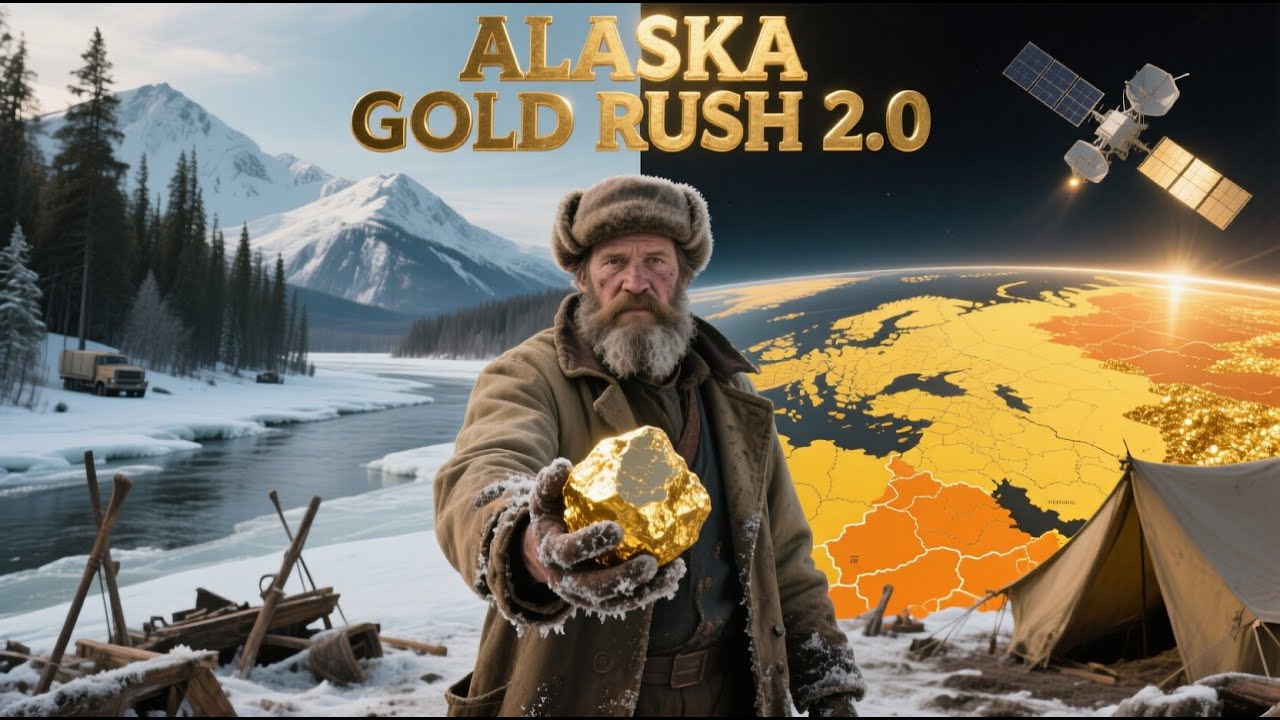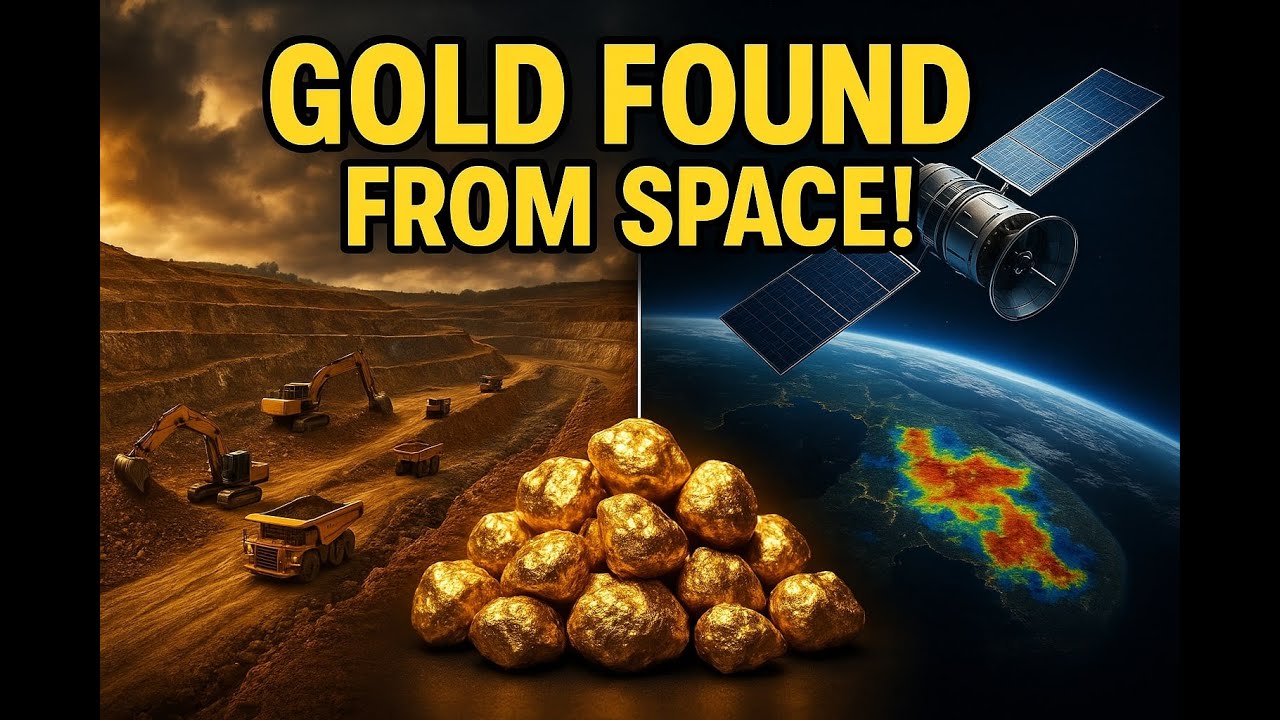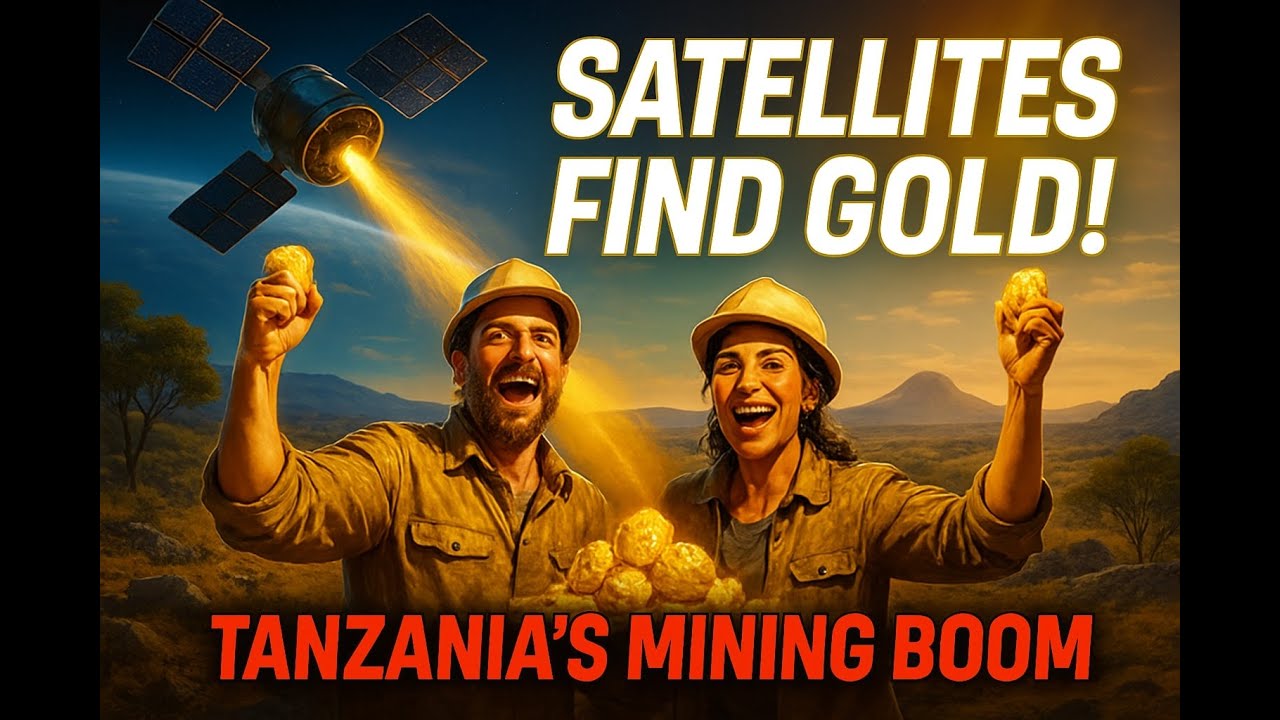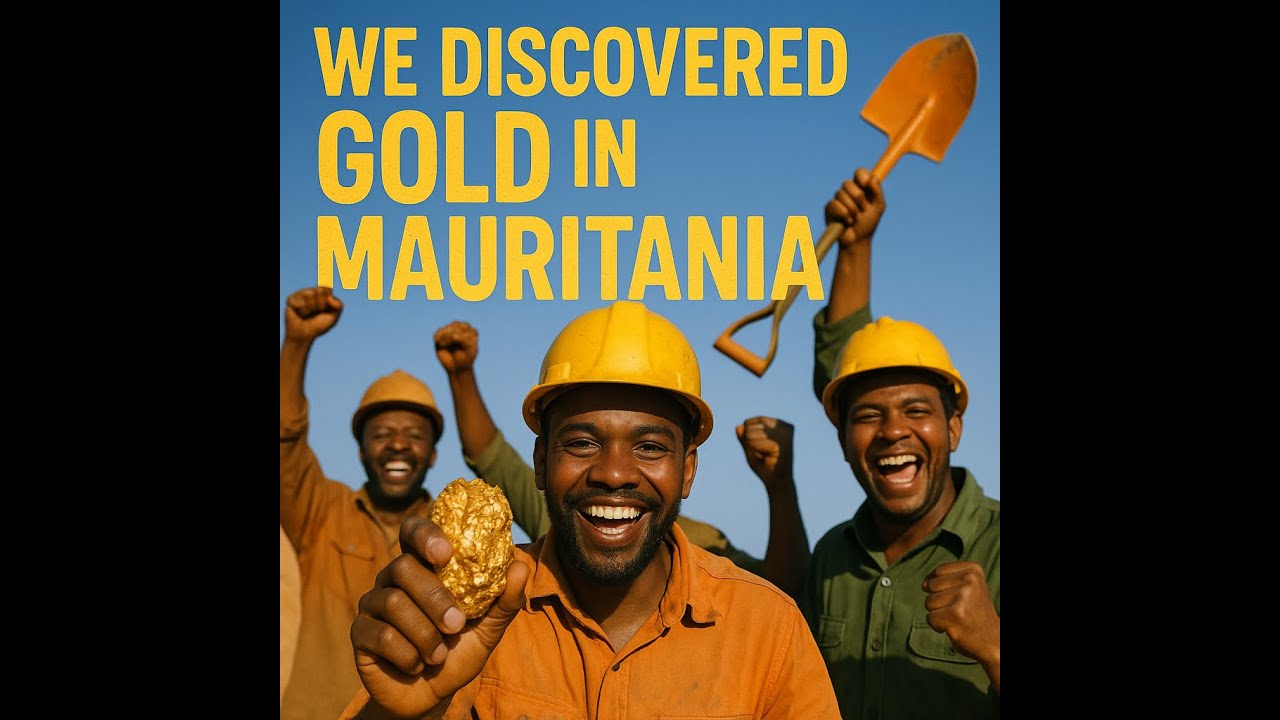Aussie Gold Rush Day 2026: Gold Rush 12 Legacy
“Australia produced over 321 tons of gold in 2023, ranking second globally in gold production.”
Table of Contents
- Introduction: The Enduring Legacy of the Aussie Gold Rush
- Historical Context: Aussie Gold Rush of the 1850s
- Gold Rush Day 2026: Commemoration & Education
- Mining Legacy to Modern Innovation: Gold Rush 12
- Historical vs. Modern Australian Gold Mining Overview
- Regional Growth: Infrastructure & Community Transformation
- Sustainable Practices and Gold Rush 12 Trends
- Modern Mining Technologies: Mining, Monitoring, and Management
- Mining’s Ongoing Influence on Agriculture
- Farmonaut: Satellite Insights for Modern Mining and Agriculture
- Future Outlook: Gold Rush 12 Legacy Beyond 2026
- Frequently Asked Questions
- Conclusion: Celebrating Gold Rush Day, Building a Sustainable Legacy
Introduction: The Enduring Legacy of the Aussie Gold Rush
The aussie gold rush is not just a historical chapter in Australia’s story—it’s a living legacy that profoundly shaped the country’s economic, infrastructural, and social foundations. As we approach Gold Rush Day in 2026, we reflect on over 175 years of transformation, ongoing industry innovation, and the rise of the Gold Rush 12: a new era symbolizing sustainable, technologically advanced mining. This blog unpacks the journey from the frenzied rushes of the 1850s to today’s modern mining sector, explaining how past and present intertwine to shape Australia’s future.
“Since the 1850s gold rush, over 10,000 mining sites have operated across Australia, shaping regional economies.”
Historical Context: Aussie Gold Rush of the 1850s
How the Gold Rush Sparked a Nation’s Transformation
The aussie gold rush began in the early 1850s, when rich alluvial gold deposits were discovered in New South Wales and Victoria. At the time, Australia was a series of struggling colonial outposts. The sparkling promise of gold proved irresistible, attracting hundreds of thousands of prospectors—not just from Britain but across the globe.
Key sites like Ballarat and Bendigo in Victoria quickly grew from remote camps to thriving communities, becoming symbols of rapid economic growth and regional development. These towns were soon synonymous with population booms, as both immigrants and locals joined the hunt for gold.
- The rush fueled the birth of many regional towns still thriving today.
- Infrastructure such as roads and railways was rapidly built to support mining activities.
- The influx of people brought about technological advances, new skills, and entrepreneurial spirit, all of which spread beyond the goldfields into the wider economy and sector.
The immediate economic boom was matched only by the long-term effects that continue to influence Australian society and its resource management practices.
Social and Infrastructural Impacts of the Gold Rush Era
The aussie gold rush of the 1850s was a transformative period for the nation, with profoundly shaping effects that remain visible today. Beyond the boomtowns and fortunes, the rush:
- Brought diverse communities together, fostering multiculturalism well before this concept became mainstream.
- Drove the foundation of modern cities and improved road and railway infrastructure that now supports a thriving national and regional economy.
- Led to the establishment of legal and regulatory systems around resource extraction.
- Set the stage for a national character defined by resilience, spirit, and entrepreneurial drive.
Even as mining towns entered boom-and-bust cycles, the legacy and relevance of the gold rush era endured through the institutions, infrastructure, and cultural fabric it helped build.
Gold Rush Day 2026: Commemoration & Education
Celebrating the Spirit and Resilience of Australian Mining
Gold Rush Day is observed nationwide, with festivities and commemorative events occurring in various states on different dates, reflecting the unique history and significance of gold mining in each region. By 2026, the celebration has grown into a national movement, uniting communities and industry leaders to reflect on the mining sector’s legacy and its continuing evolution.
- Festivals in historic mining towns such as Ballarat, Bendigo, and Kalgoorlie feature heritage tours, reenactments, and gold panning activities.
- Museum exhibits and mining heritage tours showcase artifacts from the 1850s and explain the relevance of gold mining today.
- Interactive mining simulations provide insights into both the manual techniques of the past and the tech-enabled operations of the Gold Rush 12.
- Educational events and workshops highlight the ongoing economic, technological, and environmental importance of the gold mining sector.
- These celebrations serve as an ongoing reminder of Australia’s infrastructural, economic, and environmental evolution.
As Gold Rush Day 2026 approaches, the industry doesn’t just honor its past—these activities help instill the values of resilience, innovation, and sustainability for future generations while highlighting the modern relevance of mining.
Commemoration, Education, and Cultural Heritage
The gold rush day legacy offers more than history—it’s about ongoing education, community engagement, and showcasing heritage. Across Australia, local schools, cultural organizations, and mining companies participate in:
- Community projects focused on preserving mining sites, museums, and archives.
- Collaborative efforts to highlight the contributions of alluvial gold miners, prospectors, and their families.
- Themed workshops on the evolution of mining technology, water use, and sustainable practices.
These initiatives ensure that the relevance of the gold rush era is understood—not just as a relic of the past, but as a foundation for current and future innovation in the Australian economy and society.
Mining Legacy to Modern Innovation: Gold Rush 12
From Historical Mining to Gold Rush 12—A New Era
As we look beyond the mid-2020s, the Gold Rush 12 signifies a modern renaissance within the mining sector. The term Gold Rush 12 refers to a group of twelve leading goldfields and mining operations across Australia that represent state-of-the-art industry practices:
- Advanced geological survey methods, including AI-driven satellite imaging and multispectral analysis
- Automation and digital optimization in gold extraction and logistics
- Remote sensing technologies for improved environmental management
- Unswerving commitment to sustainable mining practices—from water recycling to land rehabilitation and reduced carbon footprint
These Gold Rush 12 operations not only maximize gold yields but also minimize their environmental footprint through best-in-class resource management practices.
Economic and Social Importance of Gold Rush 12 Operations
The rise of Gold Rush 12 mining ventures brings a wealth of economic benefits to Australia, particularly in regional economies:
- Increased employment and upskilling opportunities for local communities.
- Steady contributions to the national GDP and export markets, reinforcing Australia’s status as a global mining powerhouse.
- Support for a network of suppliers, technology providers, and agricultural partners.
But Gold Rush 12 goes even further by actively investing in sustainable practices that bolster regional resilience and diversify local economies.
Historical vs. Modern Australian Gold Mining Overview
To fully appreciate the journey from gold rush era to Gold Rush 12, here’s a data-rich comparison table:
| Era | Estimated Gold Production (tonnes/year) |
Major Mining Regions | Environmental Practices | Economic Contribution (AUD billions, estimated) |
|---|---|---|---|---|
| 1850s Gold Rush | 50–70 (peak years) | Ballarat, Bendigo, Bathurst, Kalgoorlie | Minimal; little regulation, limited rehabilitation | 2–3 (historical value) |
| Modern Era (2020–2025) | 320–330 | Kalgoorlie, Tanami, Cadia Valley, Fosterville | Rehabilitation laws, water management, initial carbon monitoring | 20–22 |
| Gold Rush 12 (2026 & Trends) | 350–360 (projected peak) | Goldfields: Pilbara, Tanami, Yandal, Murchison, Eastern Goldfields, North Queensland, Central Victoria, NSW Lachlan Fold, South Australia’s Gawler, Tasmania, NT Pine Creek, Far East WA | Zero-discharge water systems, AI-driven environmental monitoring, full land rehabilitation, carbon-neutral aims | 26–29 (projected; mining & associated sectors) |
Regional Growth: Infrastructure & Community Transformation
How Gold Mining Built the Backbone of Modern Australia
The legacy of the aussie gold rush is deeply entwined with the transformation of regional infrastructure. The demand for efficient transport, energy, and water management systems led to innovations that are fundamental to today’s thriving regional communities.
- Roads and railways built for gold transportation now connect towns across Victoria, New South Wales, and Western Australia.
- Water channels and dams developed to service mining operations now sustain both towns and vast agricultural regions.
- Electricity and communication systems established during mining booms enabled the growth of other sectors and diversified regional economies.
These infrastructural advances have provided lasting benefits—agriculture and mining now coexist, facilitating economic resilience and sustainable development across the **nation**.
Sustainable Practices and Gold Rush 12 Trends
Environmental Evolution: From the 1850s to Carbon Neutrality
One of the most profound shifts within the aussie gold rush legacy is the evolution of environmental management practices. While the 1850s saw minimal oversight (with long-term damage to landscapes and waterways), modern operations focus on:
- Land rehabilitation and reforestation to restore mining-impacted ecosystems
- Zero-discharge water management systems to protect surrounding agriculture and communities
- AI-based monitoring for real-time environmental impact assessment
- Blockchain traceability for ethical supply chain verification in mining and agriculture
The Gold Rush 12 not only responds to regulatory demands but also to consumer and investor expectations for sustainability, transparency, and social responsibility. Responsible resource management is now a cornerstone of the industry.
Learn about Farmonaut’s carbon footprinting solutions for sustainable mining and agriculture—essential for meeting the Gold Rush 12’s ambitious environmental targets.
Regulatory Requirements and Community Engagement
Since the early 2000s, stronger environmental oversight has become the norm. All mining operations in Australia, especially the Gold Rush 12, must now:
- Prepare detailed environmental impact assessments and rehabilitation plans
- Engage with local communities and indigenous custodians to ensure responsible development
- Adhere to carbon emission reduction targets in line with Australia’s commitments to global climate frameworks
Transparency, sustainability, and community partnership are now standard expectations, sustaining the gold rush spirit in a modern context.
Modern Mining Technologies: Mining, Monitoring, and Management
Leveraging Technology for the Next Gold Rush
Modern mining operations rely on a host of transformative technologies—many born from Australia’s legacy of innovation in the gold rush era:
- Satellite imagery and AI-driven analytics for site selection, monitoring vegetation recovery, and detecting illegal activity
-
Remote fleet management systems for vehicle optimization across rugged mining terrain
Discover Farmonaut’s fleet management tools for smarter, safer, and more cost-efficient mining and agricultural operations -
Blockchain-based traceability for gold origin and supply chain verification, curbing fraud and boosting market confidence
See how blockchain traceability solutions from Farmonaut can ensure trusted provenance across mining and agricultural value chains - AI-driven advisory systems for predicting weather risks, refining extraction strategies, and optimizing water management
These tools support the Gold Rush 12 operations in maximizing yields, minimizing risks, and fostering sustainable growth in regional sectors.
For large-scale mines, digital and remote technologies improve not only productivity, but also safety and compliance. Real-time data on ground conditions, fleet movements, and environmental metrics deliver unparalleled agility in management and operations.
API for Developers: Interested in integrating satellite-powered insights into your mining or agricultural workflows? Check out the Farmonaut API and API Developer Docs for scalable, real-time data streams.
Mining’s Ongoing Influence on Agriculture
Synergy Between Mining, Agriculture, and Water Resource Management
The legacy of the aussie gold rush is also visible within Australia’s robust agricultural sector. Shared infrastructure and resource management practices developed during the gold rush era remain central to both industries:
- Many former gold rush towns are now thriving hubs where mining and agriculture coexist.
- Water infrastructure (channels and storage) built for mining has become essential for irrigation in regional farming districts.
- Advances in mining tailings and waste management have fostered water reuse for agricultural deployment, minimizing environmental impact.
This synergy enhances economic resilience and helps diversify income streams for communities facing the risks of global commodity price fluctuation or climatic variability.
For farmers and agribusinesses, technology cross-pollination means access to advanced monitoring, data-driven advisory solutions, and better risk management—benefits that are growing more pronounced with the digitalization of both agriculture and mining sectors.
For those managing large agricultural operations in regional hubs, Farmonaut’s Large Scale Farm Management Solution offers scalable capability for crop health, soil management, and operational planning—even in areas touched by historical mining development.
Farmonaut: Satellite Insights for Modern Mining and Agriculture
Empowering Mining and Agriculture with Data-Driven Technologies
As we look forward to the extra demands of the Gold Rush 12 and beyond, it’s clear that advanced satellite technologies are critical to resource management, environmental protection, and sustainability.
At Farmonaut, we make satellite-driven insights and AI advisory solutions accessible and affordable to all mining companies, agricultural operators, and infrastructure managers operating in historical and modern goldfields. Our platform delivers:
- Real-time satellite monitoring of gold mining sites, agricultural crops, and infrastructure projects—enabling informed decisions and rapid response.
- Jeevn AI advisory system delivering customized advice and operational strategies, fueled by multispectral imagery and predictive analytics.
- Blockchain-based traceability for enhanced supply chain transparency across the gold and agricultural industries.
-
Environmental impact tracking and carbon footprinting to support regulatory compliance and sustainable best practices.
(Learn about our carbon footprinting solutions here) - Fleet and Resource Management tools for operational efficiency, improved logistics, and reduced costs (Learn more here)
We serve a wide array of users—individual miners, large mining businesses, farmers, governments, and finance providers. Our modular, subscription-based approach makes it easy to scale as your operations grow or as you look to embrace new practices, tools, and regulatory requirements.
-
Crop Loan & Insurance Verification:
Reduce fraud and improve access to funding for agricultural and mining projects.
Explore our crop loan & insurance solutions here -
Product Traceability:
Guarantee authenticity and sustainability from mine or farm to marketplace.
Read about our traceability platform here -
Forest Advisory for Plantation & Reforestation:
Support ecological restoration efforts in mining-affected landscapes.
Access forest advisory services here
Future Outlook: Gold Rush 12 Legacy Beyond 2026
Balancing Economic Growth with Environmental Stewardship
As the Gold Rush 12 continues to set benchmarks for the industry, the long-term legacy of the aussie gold rush will depend on how mining, agriculture, and the wider economy balance growth and sustainability.
- Regional Australia is poised for further economic growth as digitalization, automation, and sustainable practices multiply productivity and safeguard natural resources.
- Social and cultural preservation remains crucial: Festivals, museums, and educational initiatives safeguard the rich heritage of the gold rush era for future generations.
- Resource-rich Australia, with robust infrastructure, skilled labor, and a strong social conscience, stands to remain a global leader in mining innovation, while advancing its net-zero and circular economy goals through the Gold Rush 12 approach.
Celebrating Gold Rush Day 2026 reinforces that the nation’s success lies in preserving the lessons, spirit, and innovations of the past while looking forward with ambition and responsibility.
Frequently Asked Questions
What is the significance of Gold Rush Day for modern Australia?
Gold Rush Day is essential for celebrating Australia’s mining history and ongoing legacy. It educates the public about how the gold rush shaped modern infrastructure, regional economies, and technological innovation. Today, it’s about honoring resilience, fostering sustainable practices, and inspiring future industry leaders.
How does Gold Rush 12 differ from previous gold rush periods?
Gold Rush 12 represents a new wave of twelve major goldfields and mining operations that use advanced technology, automation, and sustainable management. Unlike the 1850s, modern gold rushes prioritize environmental stewardship, carbon management, and community engagement in their operations.
What role does technology play in contemporary gold mining?
Technology is transformative: AI-driven analysis, satellite monitoring, automated fleet management, and blockchain supply chain tracking all drive efficiency, ensure compliance, and minimize environmental impact. They’re the backbone of Australia’s globally competitive mining sector today.
Why is environmental management vital for modern mining?
Sustainability is no longer optional. Stricter regulations, global expectations, and local community needs require mining companies (especially in the Gold Rush 12) to employ zero-discharge water systems, land rehabilitation, and real-time environmental monitoring—helping protect Australia’s landscapes for the future.
How have gold rush towns adapted since the 1850s?
Many gold rush towns have diversified into agriculture, services, and tourism. While mining remains central in some regions, modern infrastructure and technology enable these communities to thrive through multiple economic cycles, reflecting the endurance and adaptability set in motion by the rush era.
How does Farmonaut support Australian mining and agriculture?
We offer satellite-based monitoring, AI-driven advisory systems, environmental impact tracking, blockchain-based traceability, and fleet/resource management tools. Our solutions help optimize operations, enhance sustainability, ensure regulatory compliance, and improve the resilience of mining and agricultural businesses throughout Australia.
Conclusion: Celebrating Gold Rush Day, Building a Sustainable Legacy
The aussie gold rush remains one of the most transformative periods in Australian history—its influence woven into the economy, infrastructure, and innovative spirit of the nation. As we commemorate Gold Rush Day 2026 and witness the evolution of the Gold Rush 12, we celebrate not just historical achievement but also the resilience, adaptability, and forward-thinking approach that defines both the mining and agricultural sectors today.
In embracing digital technology, sustainable management. and community-driven growth, Australia stands poised for ongoing prosperity. The lessons and legacy of the gold rush era remind us that true progress comes from balancing economic ambition with social and environmental responsibility—keeping the gold rush spirit alive for generations to come.
Ready to transform your mining or agricultural operation with satellite intelligence and advanced monitoring? Download the
Farmonaut App for web or mobile, or explore our API and developer documentation for seamless integration.
References:
- Australian Bureau of Statistics, 2023 Gold Production Data
- Geoscience Australia; Historical Mining Reports
- State Government Heritage and Mining Departments
- Farmonaut Product & Technology Documentation
- Australian Mining Industry Association, Sustainability Reports






















